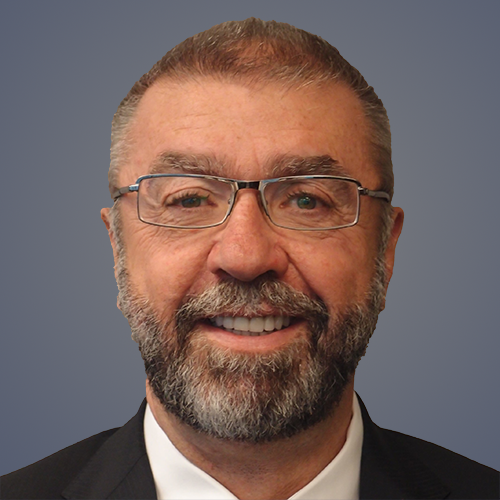Albertans are passionate about water. From majestic mountain waterfalls to astonishing coulees, Alberta’s diverse landscapes inspire and draw tourists from all over the globe. Citizens, communities, businesses, and the agricultural and energy sectors have been engaged in a discussion about water for over a hundred years. We take water seriously in Alberta and many consider it to be our most important resource. Alberta has a bright economic future and is a great place to live for the more than 3.7 million people that call it home. This is due in no small part to the stewardship and wise management of our water resources.
Alberta has a rich history of water management and water stewardship. In 1931, Alberta passed the Water Resources Act, which declared water to be the property of the province and granted abilities to use the water through a licence. In 1999, Alberta passed the Water Act which includes a Framework for Water Management Planning and a Strategy for the Protection of the Aquatic Environment where the Government of Alberta affirms its commitment to not only maintaining and restoring the natural environment, but enhancing it.
This year, Alberta celebrates the 10 year anniversary of the Water for Life strategy. Noteworthy achievements of Water for Life include the establishment of eleven Watershed Planning and Advisory Councils across Alberta where committed members conduct education and stewardship activities throughout their watersheds and partake in the development of basin water assessment and planning. In addition, under the strategy, all major water using sectors in Alberta have prepared conservation, efficiency and productivity plans that outline actions each sector will take to reduce demand for and conserve water.
From this work, Albertans have an increased awareness of water in their watersheds. This is essential for helping to shape, providing direction, and supporting the realization of sound water management in our communities. As a result of the Water for Life strategy, a growing culture of water stewardship is evident across the province.
In the early days of the province, our leaders envisioned and brought to fruition a bold irrigation plan that continues to bring prosperity to southern Alberta. Today, the irrigation sector is considered the backbone of rural society in much of southern Alberta. Irrigation provides jobs, water for communities, recreation opportunities and promotes rural development through assurance of a water supply..[1] Alberta’s irrigated farmlands and livestock industry supply quality food for people at home and across the globe. Alberta not only exports food, but also exports scientific knowledge and expertise in irrigation to developing countries. [2]
In many parts of the province, water is crucial to the development of our oil and gas resources. Energy development is the engine of Alberta’s economy with revenues accounting for almost a third of the revenue allocated under Alberta’s provincial budget.[3] Alberta’s energy sector is committed to responsible water use through adoption of water saving technologies, reuse of water, and participation in regional water stewardship activities.[4]
The Government of Alberta is committed to environmental protection and responsible resource development. This commitment is reflected in the LowerAthabascaRiver region, where strict limits are set on how much water oil sands companies can remove from the AthabascaRiver. The Athabasca River Water Management Framework ensures a high degree of protection on the LowerAthabascaRiver by placing maximum amounts of water that can be withdrawn by all oil sands operators (new and existing). The companies have to reduce their withdrawals during environmentally sensitive periods such as ice formation and breakup and when fish are spawning. The protection and maintenance of our water supplies is foundational for realizing an adequate clean supply of water to meet the needs of communities and the economy.
Alberta’s water conversation is a renewed discussion on water that builds on the feedback received from Albertans, community groups, municipal government and many stakeholders. In reviewing this range of input and advice, four areas have emerged that are being explored with Albertans. These areas include: healthy lakes, hydraulic fracturing and water, drinking water and wastewater systems and water management. By taking part in this conversation, Albertans will have the opportunity to provide feedback on these priorities and guide future government direction in these areas.
Alberta’s long history of cooperative water management, including the solid foundation of the Water Act and Water for Life, position the province to effectively tackle the tough water-related challenges that lie ahead. However, much work is still to be done and your input and advice is required to guide direction to address issues facing our water resources. I encourage you to take time to learn more about Alberta’s history as it relates to water, learn about the watershed you live in, and get involved in discussions on water. What are you waiting for! Roll up your sleeves and join in on the province wide conversation on water.
Andy Ridge, Director of Water Policy the Alberta Department of Environment and Sustainable Resource Development, leads a team dedicated to developing integrated policy approaches for achieving provincial water management objectives.
Andy has worked for the provincial government for over a decade in a variety of Ministries, including Energy, Resource Development and Environment. Prior to water, Andy worked on provincial and national climate change policy, including a leading role in the development of Alberta’s current climate change plan and associated legislation.
[1] Alberta Irrigation Projects Association, Irrigation Sector Conservation, Efficiency, Productivity Plan 2005-2015.
[2] Agriculture and Rural Development, Irrigation in Alberta Part 3.
[4] Canadian Association of Petroleum Producers and the Oil Sands Developers Group, Water Conservation, Efficiency and Productivity Plan – Upstream Oil and Gas Sector. March 2011. Golder Associates. Calgary.


